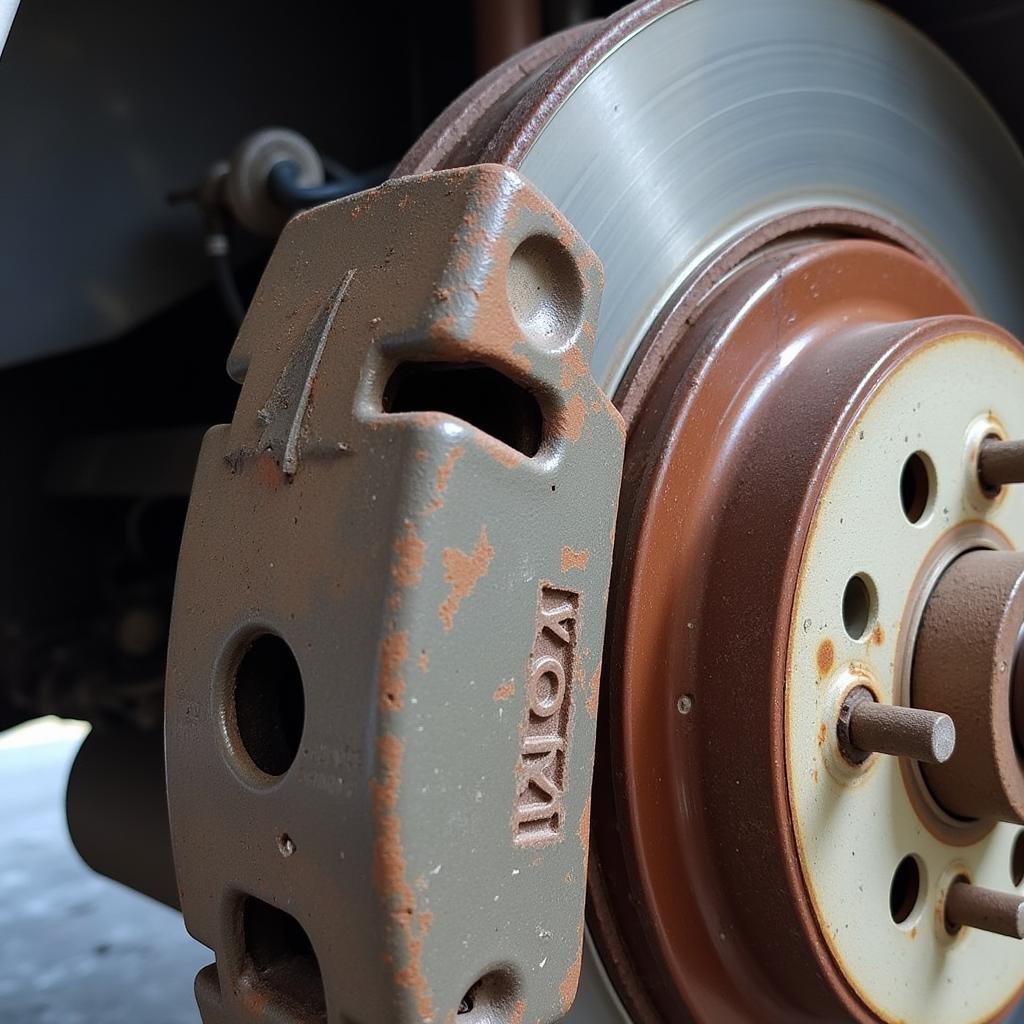Is your car struggling to start? Are your headlights dimming? If so, you might be asking yourself, “Is my alternator bad or battery?” This common automotive dilemma can be frustrating, but with a little know-how, you can pinpoint the culprit and get back on the road. will a bad alternator drain a battery This guide will walk you through the symptoms, testing procedures, and solutions to determine whether your alternator or battery is the source of your car troubles.
Identifying the Culprit: Alternator vs. Battery
The alternator and battery are vital components of your car’s electrical system, working in tandem to power everything from the ignition to the headlights. The battery provides the initial jolt of electricity to start the engine, while the alternator takes over once the engine is running, recharging the battery and powering the electrical systems.
Signs of a Failing Alternator
A failing alternator can manifest in several ways:
- Dimming headlights or interior lights
- A whining or growling noise coming from the engine bay
- Difficulty starting the car, or the car stalling while driving
- Battery warning light illuminated on the dashboard
- Electronic accessories malfunctioning
Symptoms of a Bad Battery
A bad battery can also exhibit similar symptoms:
- Slow engine crank
- Clicking sound when trying to start
- Headlights dim or don’t work
- Interior lights are weak or don’t work
- Car won’t start without a jump
battery cut out while driving Sometimes the symptoms can overlap, making it difficult to determine the root cause.
How to Test Your Alternator and Battery
Several simple tests can help differentiate between a bad alternator and a bad battery:
- The Jump Start Test: If your car starts with a jump but dies shortly after, the alternator is likely the problem. It’s not recharging the battery.
- The Visual Inspection: Check the battery terminals for corrosion. Clean them with a wire brush and baking soda solution if necessary. If the corrosion returns quickly, it could indicate a charging system problem, potentially pointing to the alternator.
- The Voltmeter Test: With the engine running, a voltmeter connected to the battery terminals should read between 13.5 and 14.5 volts. A lower reading suggests the alternator isn’t charging properly.
What If Your Battery is Dead?
If you’re facing a completely dead battery, you’ll need my car wont start without a jump and consider using a car battery charger for dead battery. Remember to address the underlying issue; a dead battery might be a symptom of a failing alternator.
Expert Insights
John Smith, a seasoned automotive electrical systems engineer, advises, “Don’t automatically assume it’s the battery. A failing alternator often mimics a bad battery. Always test both.”
Jane Doe, another experienced automotive technician, adds, “Regular battery maintenance, including cleaning the terminals and checking the electrolyte levels, can prevent many starting problems.”
Keeping Your Electrical System Healthy
Maintaining your car’s electrical system is crucial for reliable performance. Regular checks and timely replacements can save you time and money in the long run.
Preventive Measures:
- Regularly inspect your battery for corrosion and damage.
- Have your alternator tested every couple of years.
- Avoid leaving accessories running when the engine is off.
Conclusion: Addressing the “Is My Alternator Bad or Battery” Question
Determining whether your alternator or battery is the problem requires a systematic approach. By understanding the symptoms, performing the appropriate tests, and seeking professional advice when needed, you can effectively diagnose the issue and ensure your car’s electrical system is in top shape. Remember, a well-maintained electrical system contributes significantly to a reliable and enjoyable driving experience. Don’t wait until you’re stranded on the side of the road. Address the “is my alternator bad or battery” question proactively!
FAQ
- How long do car batteries typically last? On average, car batteries last 3-5 years.
- Can a bad alternator damage the battery? Yes, a malfunctioning alternator can overcharge or undercharge the battery, shortening its lifespan.
- How much does it cost to replace an alternator? The cost varies depending on the car make and model but typically ranges from $300 to $800.
- Can I drive with a bad alternator? You can drive for a short distance, but the battery will eventually drain, leaving you stranded.
- How can I prevent alternator problems? Regular inspections and avoiding excessive electrical loads can help prolong alternator life.
- What should I do if my battery warning light comes on? Have your car’s electrical system checked by a qualified mechanic as soon as possible.
- Can a bad battery cause the alternator to fail? A failing battery can put extra strain on the alternator, potentially leading to its premature failure. if your battery is dead you should check your alternator as well.

